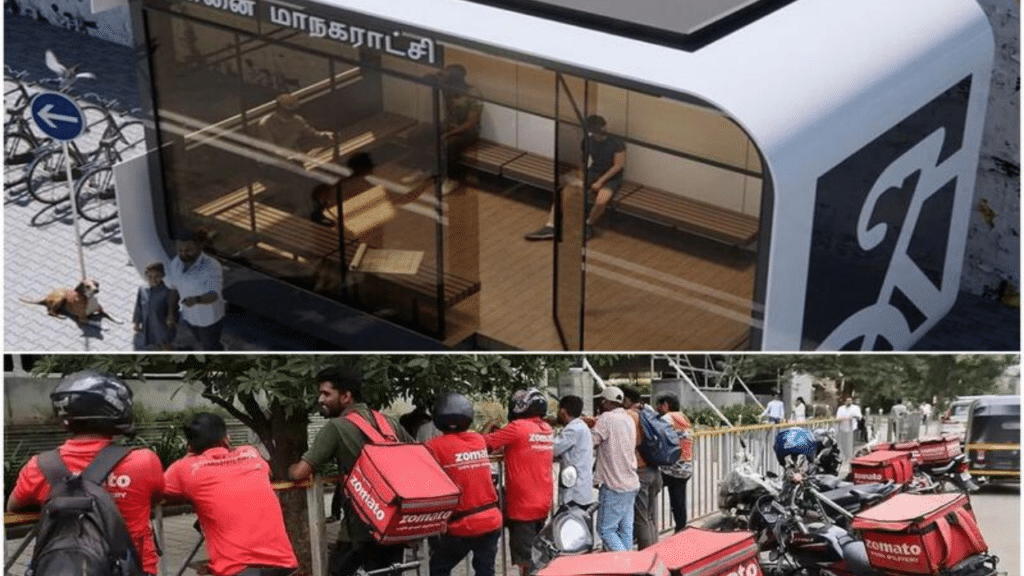In a groundbreaking move that reflects both empathy and innovation, the Greater Chennai Corporation (GCC) has launched a first-of-its-kind initiative to support the wellbeing of delivery workers in the city. Through the introduction of ‘Delivery Rest Points’, gig workers now have access to shaded areas, drinking water, seating, and phone charging stations — providing much-needed relief from the city’s harsh sun and rain.
Why This Initiative Matters
Delivery workers are the invisible force behind the booming gig economy, often working long hours in extreme weather conditions with minimal facilities. Until now, many had no option but to wait in the open — sometimes for hours — outside restaurants, residential complexes, or commercial buildings.
This new initiative, launched in partnership with private firms such as Swiggy, is a step towards acknowledging their contribution and improving their working conditions.
Features of Chennai’s Delivery Rest Points
Each rest point is thoughtfully designed with the following amenities:
- Shaded shelter to protect from sun and rain
- Seating space for short breaks
- Drinking water for hydration
- Mobile charging ports for devices
- Visibility and accessibility near high-traffic delivery zones
These facilities are being installed at strategic locations including major intersections, popular eateries, malls, and IT corridors.
A Model for Other Indian Cities
Chennai’s initiative could serve as a model for other metropolitan cities looking to create inclusive urban environments. As the gig economy grows, it’s imperative that cities evolve their infrastructure to accommodate the needs of informal and essential workers.
This human-centric design not only enhances productivity but also restores dignity to thousands of gig workers who power the city’s economy — one delivery at a time.
With the launch of ‘Delivery Rest Points’, Chennai has set a new benchmark for urban planning that values every worker. This initiative is a shining example of how cities can combine technology, design, and empathy to create inclusive public spaces.
As we continue to rely on gig workers for our convenience, it’s time we ensure their comfort and dignity are not overlooked.

